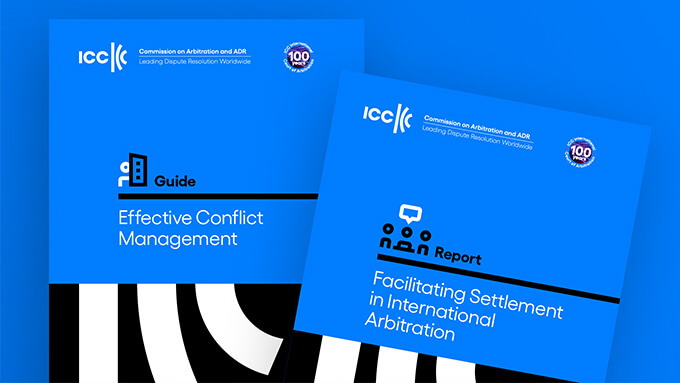Amendment of ICSID Rules and Regulations
Introduction
At the 2016 Annual Meeting of the Administrative Council, the International Centre for Settlement of Investment Disputes (“ICSID”) launched an amendment process on its’ rules and regulations (“ICSID Rules and Regulations”). This has been the fourth amendment process since 1984, 2003 and 2006[1].
As per Article 6 of the ICSID Convention, the amendments will only be effective upon the approval of two-thirds of the contracting states[2]. Hence, ICSID invited contracting states and the public[3] to provide their amendment suggestions on topics worthy of consideration, which will be used as background papers throughout the process.
Targets of the Amendment on ICSID Rules and Regulations
The amendments focus on the targets of modernization of the rules, time and cost efficiency, increase in consistency during procedures and availability of the decisions[4].
Modernization of the Rules
One of the major tasks of the amendments is modernization of the ICSID Rules and Regulations in order to incorporate the common outcomes of case law, and to reflect the common and modern practice of the arbitrators in the rules.
Streamlining the appointment of arbitrators, providing more elaborated codes of conduct on the qualifications of the arbitrators and new procedures in relation to the challenge of arbitrators may be discussed. Under the subject of challenge of arbitrators, the capacity of the arbitrators to resign prior to the constitution of the tribunal, automatic stay of proceedings, and award of costs stemming from illegitimate challenges are likely to be considered.
Time and Cost Efficiency
In order to accelerate the arbitration process the closure of the procedures, release of the awards and dissents, as well as annulment procedures may be amended to be bound by stricter time frames. In case where parties fail to pay the established advances, the time for discontinuance of a case may be expedited.
In terms of cost efficiency, explicit rules governing the authority of the tribunals to order security of costs and stay of enforcement of awards by an ad hoc committee may be provided. In parallel to this, disclosure of third-party funders may be discussed. Accordingly, more transparency on the basis of allocation of costs may be brought, and parties may have a clearer view on the possible outcomes of the process.
Increasing Consistency and Availability
Since consolidation is available under the rules through the consent of the parties, elaboration of the consolidation of cases is considered to cause significant increase in consistency. Moreover, it is considered to reduce costs that are incurred due to inconsistency.
Apart from the awards, publication of decisions and orders may now be considered. Since decisions and orders contain significant procedural and substantive conclusions, they are likely to increase consistency and their availability.
Apart from its benefits foreseen in terms of cost-efficiency and transparency as stated, above, the disclosure of third-party funding might be valuable with respect to conflict-checking purposes under the target of consistency.
Conclusion
Since the ICSID has launched its fourth amendment process on the ICSID Rules and Regulations, significant reformations are to be made on the rules targeting on modernization, time and cost-efficiency, increase in consistency, and availability of decisions.
Currently, the amendment proposals of the contracting states and the public are under the consideration of the ICSID, which will provide background papers detailing requests and structure. Following the amendments, the rules will be one step closer to adapting to the current needs of the modern-world investment disputes.
[1] For further details on the previous amendments on the ICSID Rules and Regulations, please see: https://icsid.worldbank.org/en/Pages/resources/ICSID-Convention,-Regulations-and-Rules.aspx.
[2] ICSID Convention,Regulations and Rules, ICSID/15 April 2006, https://icsid.worldbank.org/en/Documents/icsiddocs/ICSID%20Convention%20English.pdf.
[3] For the ICSID Report on the Public Comments to Amendment of ICSID Rules and Regulations: https://icsid.worldbank.org/en/Documents/about/Public%20Comments%20to%20Amendment%20to%20ICSID%20Rules%20and%20Regulations.pdf.
[4] For further details on the amendment proposals, please see: https://icsid.worldbank.org/en/Documents/about/ICSID%20Rules%20Amendment%20Process-ENG.pdf.
All rights of this article are reserved. This article may not be used, reproduced, copied, published, distributed, or otherwise disseminated without quotation or Erdem & Erdem Law Firm's written consent. Any content created without citing the resource or Erdem & Erdem Law Firm’s written consent is regularly tracked, and legal action will be taken in case of violation.
Other Contents

Emergency arbitration addresses the need for interim protection before the arbitral tribunal is constituted in institutional arbitrations. Arbitral institutions establish short timeframes to ensure parties can obtain interim relief quickly. For example, the International Chamber of Commerce (“ICC”) requires that the emergency...

International arbitration remains the preferred mechanism for resolving complex cross-border disputes. Yet despite its advantages—neutrality, enforceability, flexibility—arbitration is frequently criticized for being too slow, too expensive, and too procedurally heavy. Often, parties proceed through hearings and...

For arbitral awards rendered in international commercial arbitration to produce legal effects in foreign jurisdictions, they must be subjected to proceedings for “recognition” and “enforcement.” This process is governed by the New York Convention as well as by the provisions of the Law on Private International Law...

Arbitrability, the determination of whether a specific subject matter can be resolved through arbitration, constitutes a fundamental aspect of arbitration within the scope of international commercial dispute resolution. This concept draws a delicate balance between party autonomy—a fundamental principle of arbitration...

The recognition, enforcement, and annulment of foreign court and arbitral awards in Türkiye are processes in which public policy emerges as one of the most critical criteria for review, both in theory and in practice. The Court of Cassation decisions determine the direction of case law regarding the scope and...

As is well known, the action for annulment of objection is a special type of lawsuit regulated under Article 67 of the Turkish Execution and Bankruptcy Law No. 2004 (“EBL”). The primary objective of this action is to nullify a debtor’s objection to execution proceedings. Despite its procedural function of facilitating...

On 16 December 2024, the London Court of International Arbitration (“LCIA”) released its third batch of challenge decisions covering the period from 22 July 2017 to 31 December 2022. The LCIA has also issued a detailed commentary that identifies key legal themes and analytical trends, offering practitioners...

The International Chamber of Commerce (“ICC”) has published its report on the dispute resolution statistics for 2023 (“Report”) , shedding light on the evolving landscape of international arbitration...

Syndicated loans undoubtedly hold a significant position among global financing models. In 2023 alone, 3,655 syndicated loans were provided to companies in the US, with their total value reaching USD 2.4 trillion...

Preliminary attachment refers to the temporary seizure of a debtor's assets to secure a creditor's claim. While it serves as a vital instrument for safeguarding the rights of creditors, it is subject to specific and stringent conditions under Turkish law to prevent any potential misuse...

One of the most important reasons for parties to choose arbitration is the opportunity to freely choose their arbitrators. This freedom granted to the parties also distinguishes arbitration from proceedings before state courts, where the parties are deprived of the power to determine the judges who will conduct the...

The 6th Civil Chamber of the Court of Cassation ruled on October 12, 2022, that national courts have jurisdiction over objections to provisional measures in international arbitration disputes...

The declaration of intent to resolve disputes through arbitration is the fundamental constituent element of an arbitration agreement. To speak of a valid arbitration agreement, the parties' intention to arbitrate must emerge in a way that leaves no room for dispute...

In the wake of the evolving dynamics of commercial transactions, the Netherlands Arbitration Institute Foundation (NAI) announced new arbitration rules . 2024 NAI Arbitration Rules are in force as of 1 March 2024 and will be applicable on proceedings filed on or after this date...

With the global shift to online activities, domain names play a crucial role in identifying businesses. It is more common than ever for a domain name to be registered that is confusingly similar to a trademark or service mark...

The ICC Commission on Arbitration and ADR (“Commission”) published a new guide and report with the aim to increase awareness on alternative dispute resolution (“ADR”) mechanisms to prevent disputes and strengthen the relationship between all stakeholders.The Guide on Effective Conflict Management...

Mergers and Acquisitions (“M&A”) are restructuring of companies or assets through various types of financial transactions, such as mergers, acquisitions, purchase of assets, or management acquisitions. This Newsletter article covers M&A disputes being solved before arbitral tribunals.

In the context of arbitration practice, the principle of revision au fond means that the courts can not examine the merits of a dispute when reviewing an arbitral award. This principle is most commonly encountered in set aside and enforcement proceedings. An arbitral award is evidence of the parties’ willingness...

Under Turkish law, parties may agree on the settlement of disputes that have arisen or may arise, regarding the rights that they can freely dispose of, by arbitration. However, disputes which are not subject to the will of parties, such as the disputes relating to in rem rights of immovables, bankruptcy law...

On 4 September 2020, a research project “Does a Right to a Physical Hearing Exist in International Arbitration?” was launched by an International Council for Commercial Arbitration (“ICCA”) taskforce. Due to the Covid-19 pandemic, many arbitration hearings were held online. Many institutional rules...

Dubai International Arbitration Center amended its Arbitration Rules on 25 February 2022. The 2022 Arbitration Rules were published on 2 March 2022 and came into effect on 21 March 2022. The Rules will be applied to arbitrations that are filed after 21 March 2022; unless parties agree otherwise...

In the aftermath of the Achmea decision, controversies on intra-EU arbitrations continue. Most recently, the Paris Court of Appeal has annulled two arbitral awards rendered against Poland. Meanwhile, the Higher Regional Court of Berlin has refused to declare that an Irish investor’s ICSID claim...


Under Turkish law, the legal remedy that can be applied against arbitral awards is an annulment action. Law on International Arbitration No. 4686 (“IAL”) finds its application area in arbitration proceedings where Turkey is the place of arbitration...

It is well known that following a decision of the Court of Justice of the European Union, problems arose related to arbitration of intra-EU disputes, and particularly arbitration under the Energy Charter Treaty...

Arbitration in corporate law contains controversial elements in many respects, especially the issue of arbitrability. Even in legal systems where these disputes are considered to be arbitrable, uncertainties remain on whether an arbitration clause can be included in the articles of...





Arbitration has benifited from a great increase in the use of technology which has directly effected the conduct of proceedings. More particularly, with digitalization, the way that we conduct arbitration proceedings has been changed to reflect the current needs of parties, with an aim of increasing time...
































































